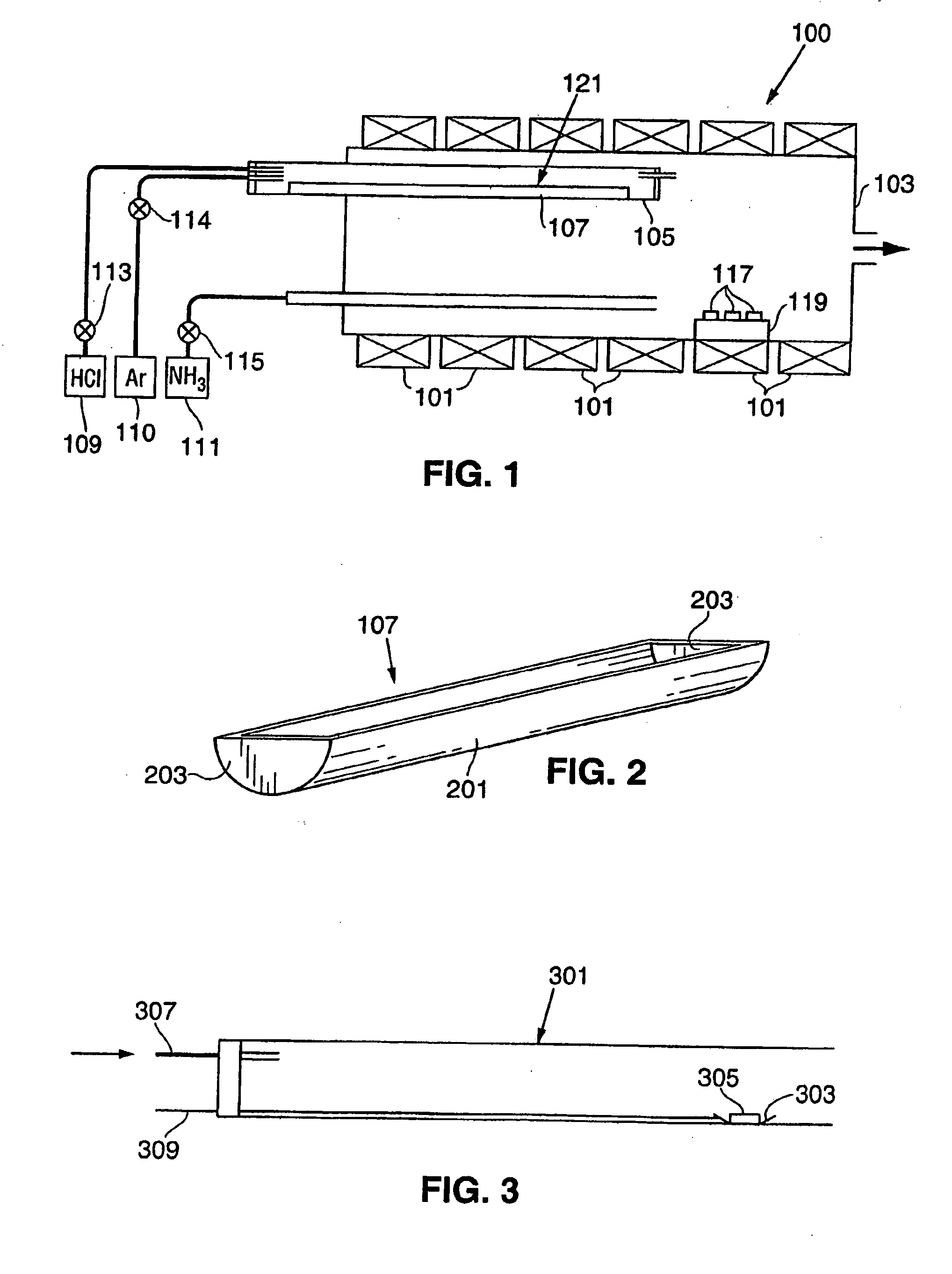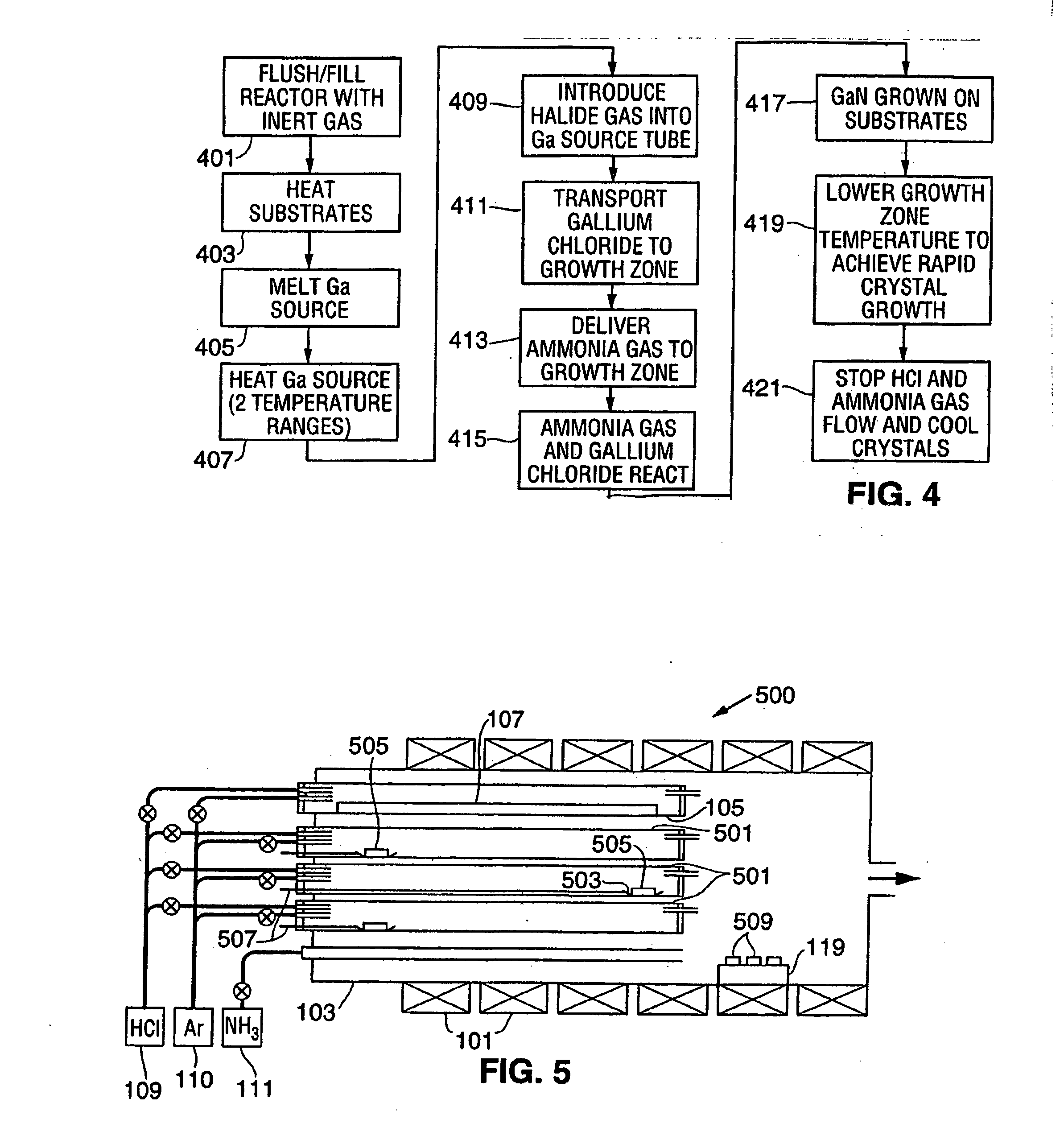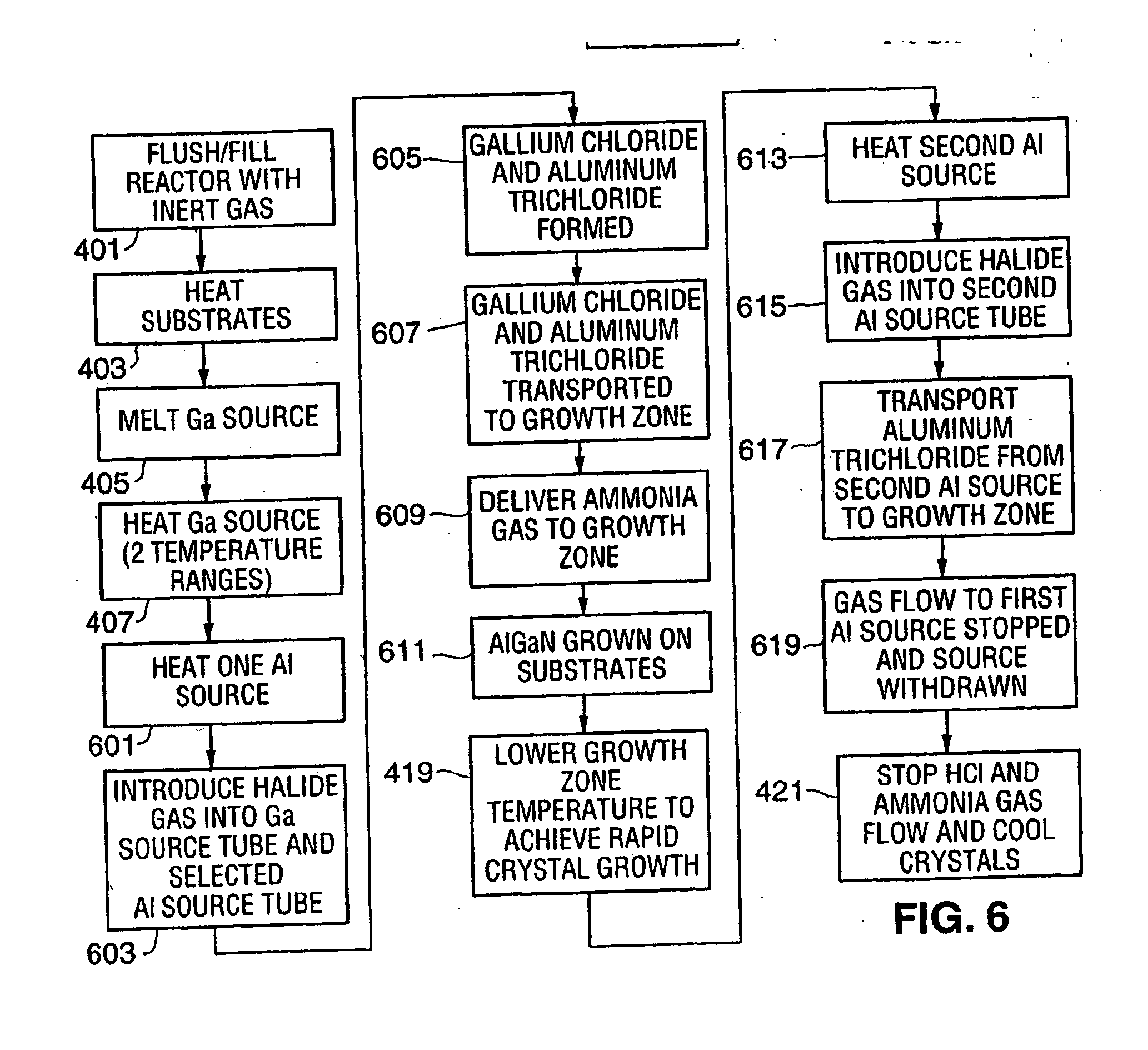Method for simultaneously producing multiple wafers during a single epitaxial growth run and semiconductor structure grown thereby
a technology of epitaxial growth and semiconductor structure, which is applied in the direction of single crystal growth, polycrystalline material growth, chemistry apparatus and processes, etc., can solve the problems of limited mocvd technology, inconvenient operation, and inability to efficiently and improve the fabrication of group iii nitride devices,
- Summary
- Abstract
- Description
- Claims
- Application Information
AI Technical Summary
Benefits of technology
Problems solved by technology
Method used
Image
Examples
embodiment 1
[0067] Embodiment 1
[0068] According to this embodiment, the modified HVPE process described above was used to grow thick GaN layers on SiC substrates. Suitable GaN substrates were then fabricated and used in conjunction with the modified HVPE process of the invention to grow a GaN single crystal boule. The second GaN boule was cut into wafers suitable for device applications.
[0069] In this embodiment, multiple SiC substrates of a 6H polytype were loaded into the growth zone of a reactor similar to that shown in FIG. 1. The substrates were placed on a quartz sample holder with the (0001) Si on-axis surface positioned for GaN deposition. One kilogram of Ga metal was positioned in the source boat within the Ga source tube. After purging the reactor with Ar gas to remove air, the growth zone and the Ga source zone were heated to 1100° C. and 650° C., respectively. The majority of the Ga source, however, was maintained at a temperature of less than 100° C., typically in the range of 30°...
embodiment 2
[0080] Embodiment 2
[0081] In this embodiment, a GaN seed was first fabricated as described in Embodiment 1. The 5.08 centimeter diameter (i.e., 2 inch diameter) prepared GaN seed substrates were then placed within a stainless steel, resistively heated furnace and a GaN single crystal boule was grown using a sublimation technique. GaN powder, located within a graphite boat, was used as the Ga vapor source while NH3 gas was used as the nitrogen source. The GaN seed was kept at a temperature of 1100° C. during the growth. The GaN source was located below the seed at a temperature higher than the seed temperature. The growth was performed at a reduced pressure.
[0082] The growth rate using the above-described sublimation technique was approximately 0.5 millimeters per hour. After a growth cycle of 24 hours, a 12 millimeter thick boule was grown with a maximum boule diameter of 54 millimeters. The boule was divided into 30 wafers using a diamond wire saw and the slicing and processing pr...
embodiment 3
[0083] Embodiment 3
[0084] In this embodiment, bulk GaN material was grown in an inert gas flow at atmospheric pressure utilizing the hot-wall, horizontal reactor described in Embodiment 1. Six 5.08 centimeter diameter (i.e., 2 inch diameter) silicon carbide substrates of a 6H polytype, were placed on a quartz pedestal and loaded into a growth zone of the quartz reactor. The substrates were located such that the (0001) Si on-axis surfaces were positioned for GaN deposition. Approximately 0.9 kilograms of Ga (7N) was located within a quartz boat in the Ga source zone of the reactor. This channel was used for delivery of gallium chloride to the growth zone of the reactor. A second quartz tube was used for ammonia (NH3) delivery to the growth zone. A third separate quartz tube was used for HCl gas delivery to the growth zone.
[0085] The reactor was filled with Ar gas, the Ar gas flow through the reactor being in the range of 1 to 25 liters per minute. The substrates were then heated in ...
PUM
 Login to View More
Login to View More Abstract
Description
Claims
Application Information
 Login to View More
Login to View More - R&D
- Intellectual Property
- Life Sciences
- Materials
- Tech Scout
- Unparalleled Data Quality
- Higher Quality Content
- 60% Fewer Hallucinations
Browse by: Latest US Patents, China's latest patents, Technical Efficacy Thesaurus, Application Domain, Technology Topic, Popular Technical Reports.
© 2025 PatSnap. All rights reserved.Legal|Privacy policy|Modern Slavery Act Transparency Statement|Sitemap|About US| Contact US: help@patsnap.com



